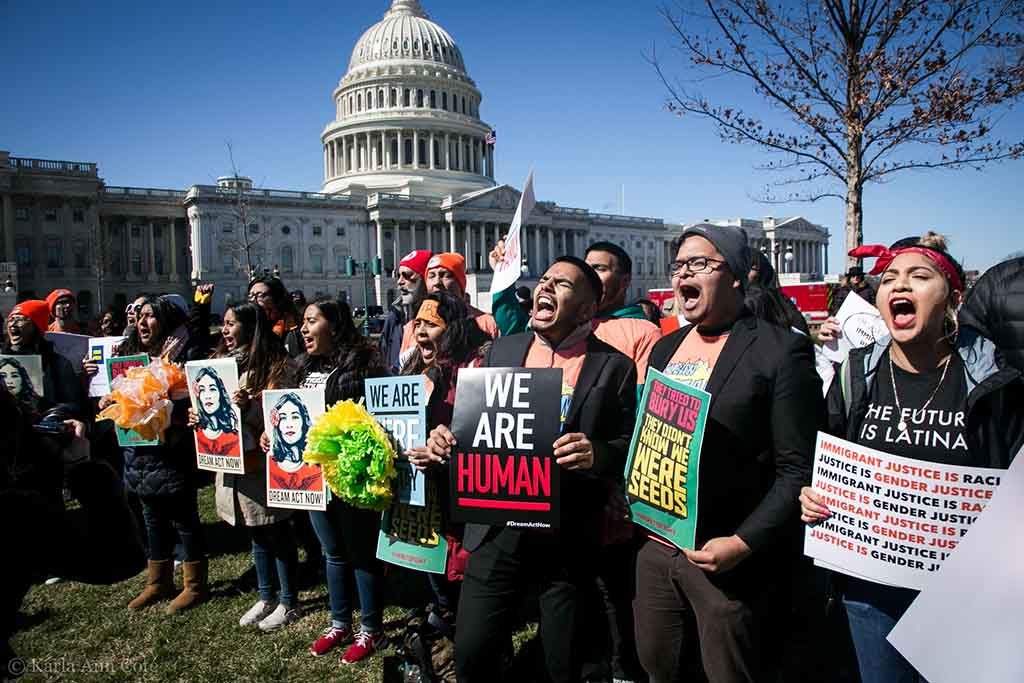Just this week we welcomed a new member of our board, Patricia Zermeño. During her visit to our office, I got a chance to hear more about her incredible work representing immigrant youth as an immigration attorney in California. Here’s what we chatted about:
Tell us a little bit about your work and what inspires you about it.
I’m an immigration attorney, and I work at this point primarily with children detained in the immigration detention centers in northern California. There are three levels of security, and I work with the most secure facility, and so it presents its challenges as a result.
What inspires me most about the work is working with the youth and their resilience. It’s really impressive to hear from them about the things that they’ve gone through and how far they’ve gotten in life, a lot of times on their own, and then how even with all of the things they’ve gone through in their life and the fact they’re in this, essentially, prison and have to go through this really complicated system, they have these really interesting and very real insights and perceptions about the world and how it works.
How old are the kids you work with?
The youngest I’ve had in this position is 14. I have some transition-age youth clients, so it can go up to 24. But right now my oldest client is 18 or 19.
And when you say it’s more secure –
It’s a juvenile hall. The county juvenile hall has a contract with the government and they hold the youth in that center. So it’s a jail.
Thinking about the work you have done as an immigration attorney, what gives you the most pride?
Feeling like I’m doing something for my community, knowing that there were people helping my family and being able to be that person, too, to navigate through the system, and coming from the community itself. It’s a tough question – you know, it’s a little self-congratulatory.
Are there any moments when you felt like, Yes! This is really satisfying?
Yea, when I win. (Laughs) When one of my clients gets asylum, I’m like, Yes. Sometimes it’s a smaller win than that, like when we’re able to reverse a deportation order. Those are the moments, and you can see the effect it has on that person and how much security they’re gonna have in their lives – to be able to leave that state of constant survival, for these kids especially that are coming from more violent or more traumatic backgrounds, to be able to get out of that space and move into a different, more secure space in their lives.
How long does a case usually take, and how often do you win?
With the kids in these detention centers, they’re more in flux, so sometimes I’ll start working on their case and they’ll get transferred somewhere else so somebody else will take on the rest of their case. But if we’re talking about a youth who stays at the detention center and we continue to work with them, it can take easily a year or more, and sometimes they’re detained that whole time, sometimes they’re not, depending on what’s going on with their situation. But it takes a long time. Especially for asylum the decisions can be pending for over a year – very often, if the case is really complicated.
And are you working on multiple cases at a time?
Yes.
What is the best advice you’ve ever gotten?
I have two sets of advice that I got from two different people.
Before I went to law school, I was volunteering with an organization that was doing U visas for domestic violence survivors, and the attorney I worked with their was an amazing person. And her advice to me when I was trying to where to go to law school or decide what to do was – and I’m paraphrasing – if you know what you want to do, it doesn’t matter where you go, you’re gonna make that space work for you. That was very helpful advice as I was going through law school, and it holds true.
And the other set of advice that I got from a co-worker more recently was to take care of yourself and how important self-care is – because if you wanna be able to continue to do the work for long term you have to be able to make it.
Yes, and we need you to make it!
(Laughs)
I like how they’re so simple but profound – life-saving almost.
It was very helpful. It was more helpful than like, well this law school has this program, and this law school has that program. She’s like, you know what, you’re gonna do the work you’re gonna do, you’re gonna make it work for you and you’re gonna make it happen for yourself.
Awesome, thank you. And if you could, what one thing would you change to make the lives of the youth you’re working with better?
Not be detained. That’s it. They should not be detained.

